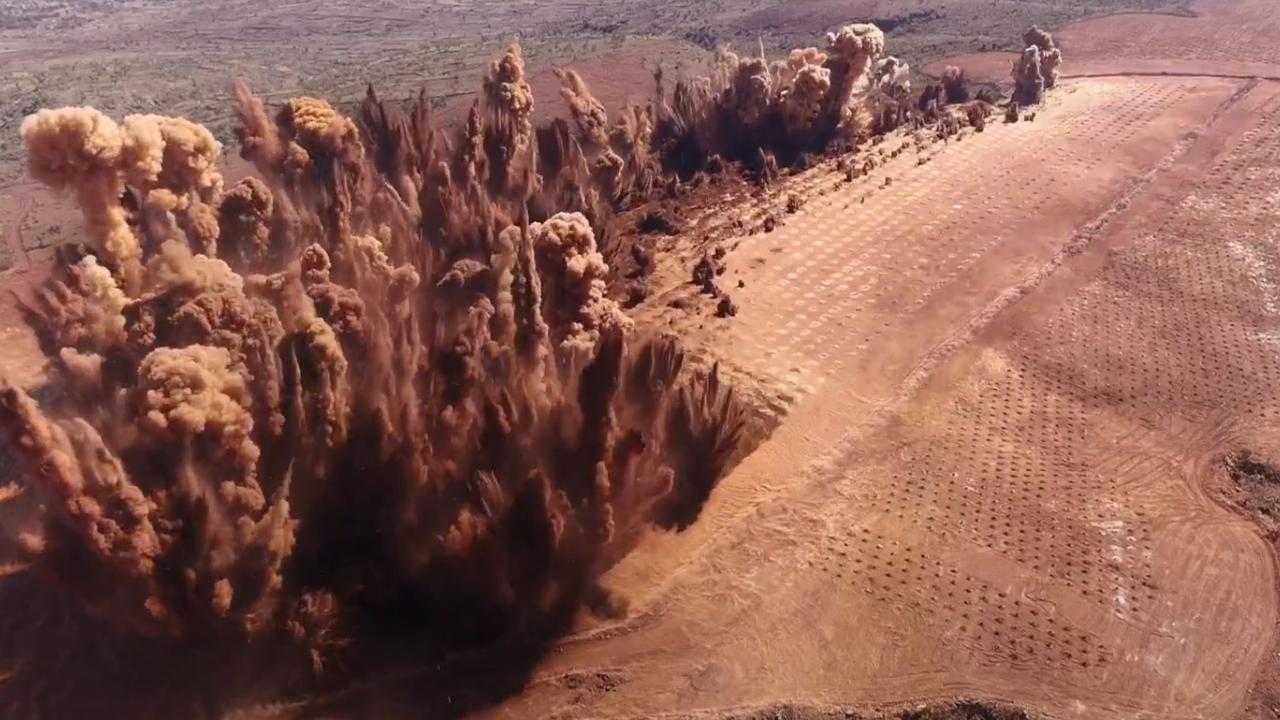Australian allies deliver blunt warning to China on Indo-Pacific restrictions
Prime Minister Anthony Albanese has confirmed he intends to take up China’s invitation to visit, as powerful allies delivered a sharp message to the country.
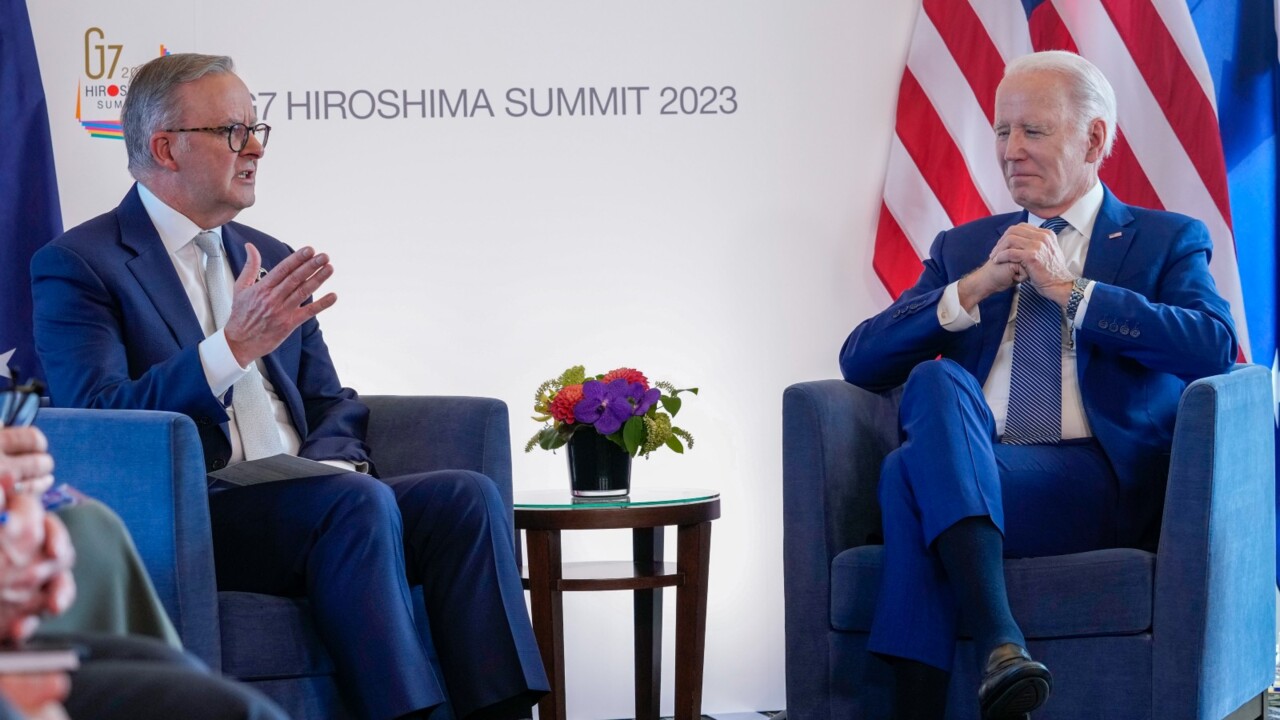
National
Don't miss out on the headlines from National. Followed categories will be added to My News.
Australia has joined with powerful allies on the world stage to deliver China a blunt message that coercion, intimidation and restrictions on freedoms in the Indo-Pacific will not be tolerated, as Beijing seeks to undermine US credibility in the region.
Anthony Albanese has confirmed he intends to take up China’s invitation to visit the country “at some time in the future,” but warned he would continue to raise the plight of detained Australians as well as other security and trade issues even as diplomatic relations with Beijing thawed.
“You need dialogue to get understanding, and you also need dialogue to avoid miscalculations, which has been a concern,” he said.
The Prime Minister chaired a hastily rearranged meeting of the Quad leaders dialogue in Hiroshima, Japan late on Saturday night in place of the planned event in Sydney this week after US President Joe Biden was forced to withdraw from his impending trip to Australia to deal with domestic issues.
Together with Indian Prime Minister Narendra Modi and Japan’s Fumio Kishida, the four leaders pledged their nations’ unwavering support for a “free and open” Indo-Pacific.
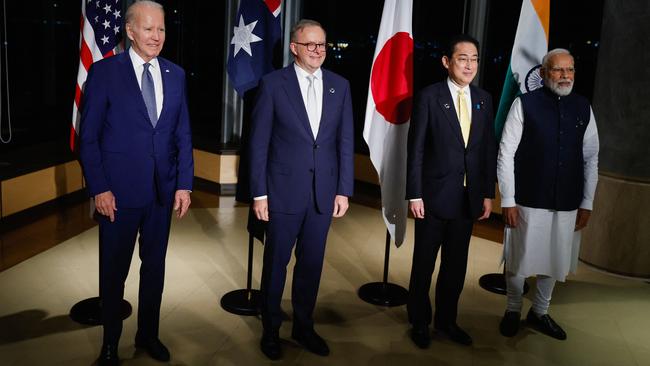
Speaking after the meeting on Sunday, Mr Albanese said the “lack of guardrails” to ensure tensions with China did not unnecessarily escalate was “of concern”.
“It’s important that they’ve been put in place, the sort of guardrails that were in place for a long period of time during the period of US-Soviet competition that occurred during the Cold War,” he said.
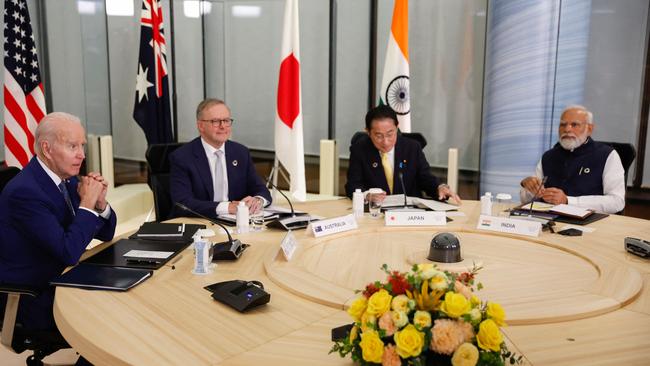
With a trip to the China likely in the coming months, Mr Albanese said at “every opportunity” he would raise the plight of detained Australians in China, including journalist Cheng Lei and academic Yang Hengjun, with his Beijing counterparts.
“The detention of Cheng Lei for example, (she) hasn’t even been able to speak to her children,” the Prime Minister said.
“That’s not appropriate. We need transparency.
“Australia will continue to make representations to China on behalf of our citizens.”
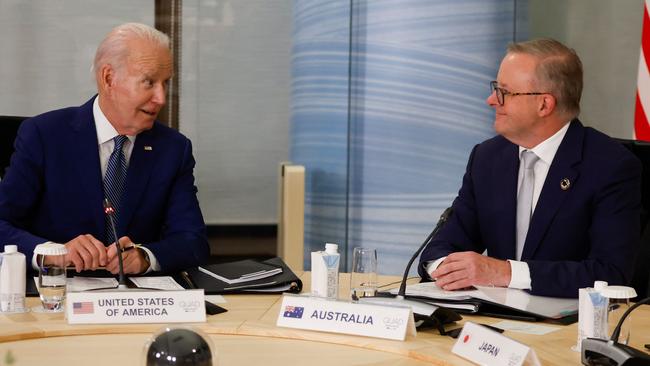
Beijing’s media mouthpiece the Global Times sought to paint Mr Biden’s failure to attend the planned Quad leaders meeting in Sydney this week as proof of the US’ waning influence, power and interest in the region as the nation becomes consumed by domestic concerns.
“The US will turn back on its commitment with no hesitation,” one Global Times article said.
But a pointed joint statement overnight the four Quad-leaders said they sought a region in which all countries and peoples could “exercise free choice”.
“Our vision is for a region that is peaceful and prosperous, stable and secure, and respectful of sovereignty – free from intimidation and coercion, and where disputes are settled in accordance with international law,” the statement said.
Mr Albanese also held a one-on-one meeting with Mr Biden, where the pair signed a critical minerals agreement to secure supply chains for key components and rare-earth metals markets largely dominated by China.
Originally published as Australian allies deliver blunt warning to China on Indo-Pacific restrictions



